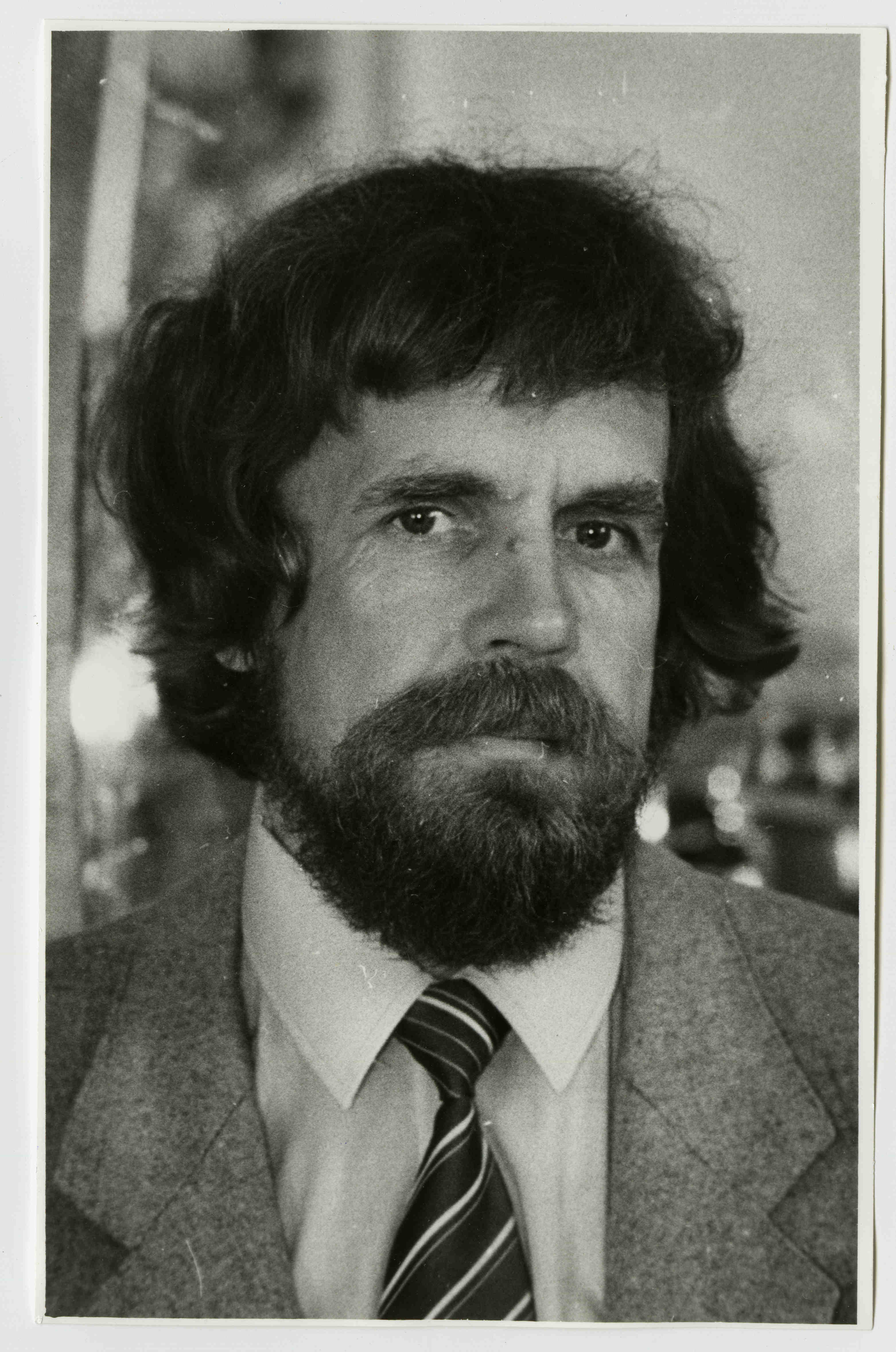
Rein Põder
Rein Põder (7 July 1943 – 23 October 2018) was an Estonian writer.
Põder was born in Mõniste parish as the son of a construction worker. He was educated at Krabi school (1950–1953), Saru 7-year school (1953–1957) and Varstu secondary school (1957–1961). In 1961, Põder entered the Faculty of Biology and Geography at Tartu State University, from which he graduated in 1969 with the qualifications of a geographer-hydrologist (oceanologist). From 1963–1966, he did mandatory military service in the Soviet Army. Põder worked as an instructor at the Estonian Society for Nature Conservation from 1969–1971, from 1971–1976 for the newspaper Noorte Hääl, and in 1977 as senior editor at the joint editorial office of the magazines Pioneer and Täheke. From 1977, he worked in the publishing house Eesti Raamat, first as deputy head of the department of children’s and youth literature, then (from 1983) as a senior editor in the editorial office of contemporary Estonian fiction. From 1997, he was chief editor of Eesti Raamat. From the same year, he also led the council of the Estonian Novel Foundation. He was a member of the Estonian Writers’ Union from 1989. Rein Põder died in Tallinn.
Rein Põder’s first fiction piece Kaugus (‘Distance’) was published in Tartu Riiklik Ülikool, the weekly newspaper of Tartu State University, in 1969. He participated in literary competitions; his next stories were published in the magazines Pioneer and Noorus and in the collection Noori autoreid ´77 (‘Young Authors ‘77’, 1979). The first book, a collection of stories for young people, Kingitus (‘Gift’, 1981), was published two years later, followed a year later by the children’s book Kuldvits (‘Goldenrod’, 1982). In the same year, Põder also published a prose collection for adults, Kahekesi maailmas (‘Two in a World’, 1982).
Põder’s creation has a psychological slant, yet it is mildly lyrical, often taking the reader into seemingly mundane situations that open reminiscent introspections and make one think about the essence of life, human nature, and the value scale of justice and injustice. His ability to describe situations is visually perceptible, full of nostalgic conjectures, smells and sounds.
His early prose aimed at young people has been called emotionally educative. Later, the focus shifted to prose aimed at adults and the main emphasis to novels. Põder’s creation also contains elements of mythology and fantasy.
In some of his books, especially of the later period, Põder, who participated in long hikes and expeditions during his university years, has used material from his youth, describing trips and journeys and letting the reader look at the geographers’ world ruled by natural forces. In addition, an important role in his creation belongs to biographies. Several works are based on the lives of better- or less-known historical figures.
In addition to shorter and longer prose, he has published literary reportages, travel notes, reviews and plays (staged at Rakvere Theatre), compiled a collection of A. H. Tammsaare’s works and translated from Russian and English into Estonian. His works have been translated into German, English, Russian, Latvian, Lithuanian and Belarusian.
Põder received recognitions for his work in each decade: in 1984, the short story competition prize of the journal Looming, in 1985 the Eduard Vilde Prize in Literature for the novel Hilised astrid (‘Late Asters’), in 1994 the Bernard Kangro Literary Prize, in 1995 the Virumaa Literary Prize for the novel Imelik vang (‘A Strange Prisoner’), 1996 in the August Mälk Short Story Prize for the story Vihm Temucos (‘Rain in Temuco’), in 2010 the Bernard Kangro Literary Prize again and in 2011 the A. H. Tammsaare Literary Award — both of the latter for the novel Unustatud (‘Forgotten’).
M. K. (Translated by I. A.)
Books in Estonian
Novels
Hilised astrid. Tallinn: Eesti Raamat, 1984, 224 lk.
Pardiajaja. Tallinn: Eesti Raamat, 1988, 175 lk.
Jahedad varjud. Tallinn: Eesti Raamat, 1992, 272 lk.
Külmnäpp. Tallinn: Eesti Raamat, 1993, 187 lk.
Imelik vang. Tallinn: Eesti Raamat, 1995, 160 lk.
Äiatar. Tallinn: Eesti Raamat, 1998, 256 lk.
Hula. Tallinn: Eesti Raamat, 2000, 490 lk.
Hiliskevad. Tallinn: Eesti Raamat, 2002, 288 lk.
Teadmatus. Tallinn: Eesti Raamat, 2004, 294 lk.
Eike. Tallinn: Eesti Raamat, 2006, 512 lk.
Juba olnud. Tallinn: Eesti Raamat, 2008, 464 lk.
Unustatud. Tallinn: Eesti Raamat, 2010, 271 lk.
Kauge. Tallinn: Eesti Raamat, 2011, 360 lk.
Laev. Tallinn: Eesti Raamat, 2012, 207 lk.
Voor. Tallinn: Eesti Raamat, 2013, 205 lk.
Liesel. Tallinn: Eesti Raamat, 2015, 303 lk.
Suur retk. Tallinn: Eesti Raamat, 2015, 272 lk.
Kivitok. Tallinn: Eesti Raamat, 2017, 192 lk.
Savimäe. Tallinn: Eesti Raamat, 2017, 208 lk.
Maailm on imeline. Tallinn: Eesti Raamat, 2018, 192 lk.
Kättemaks. Tallinn: Eesti Raamat, 2019, 192 lk.
Short prose
Kahekesi maailmas. Tallinn: Eesti Raamat, 1982, 236 lk.
Kivide aed. Tallinn: Eesti Raamat, 1986, 248 lk.
Salaarmastus. (Proosat 1985–1988). Tallinn: Eesti Raamat, 1990, 144 lk.
Armastuse hääl. Tallinn: Eesti Raamat, 1996, 216 lk.
Kuningapuu. [novellid + näidend]Tallinn: Eesti Raamat, 2014, 223 lk.
Children’s/youth literature
Kingitus. Tallinn: Eesti Raamat, 1981, 118 lk.
Kuldvits. Tallinn: Eesti Raamat, 1982, 56 lk.
Kõige pikem suvi. Tallinn: Eesti Raamat, 1986, 159 lk.
Põlev ratas. Tallinn: Eesti Raamat, 1988, 80 lk.
Merikarp. Tallinn: Eesti Raamat, 2007, 143 lk.
Memoirs
Tagasivaatepeeglis. Tallinn: Eesti Raamat, 2016, 272 lk.



